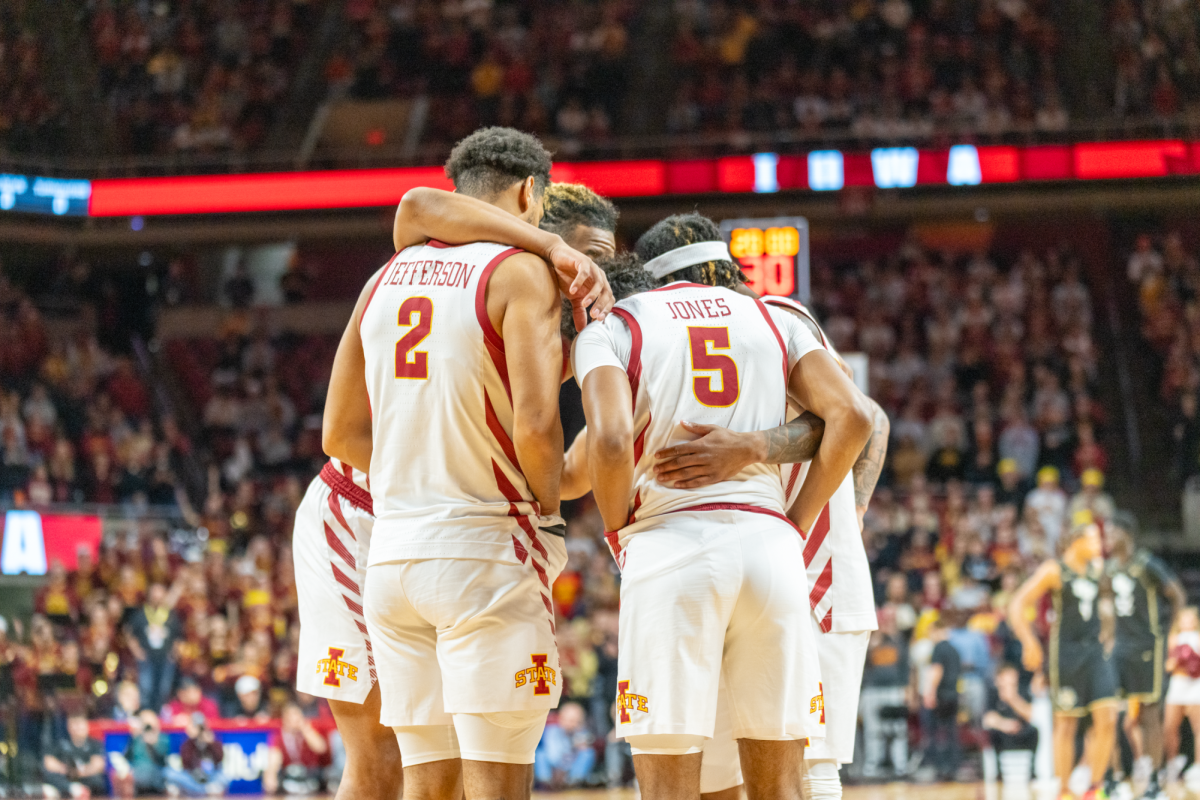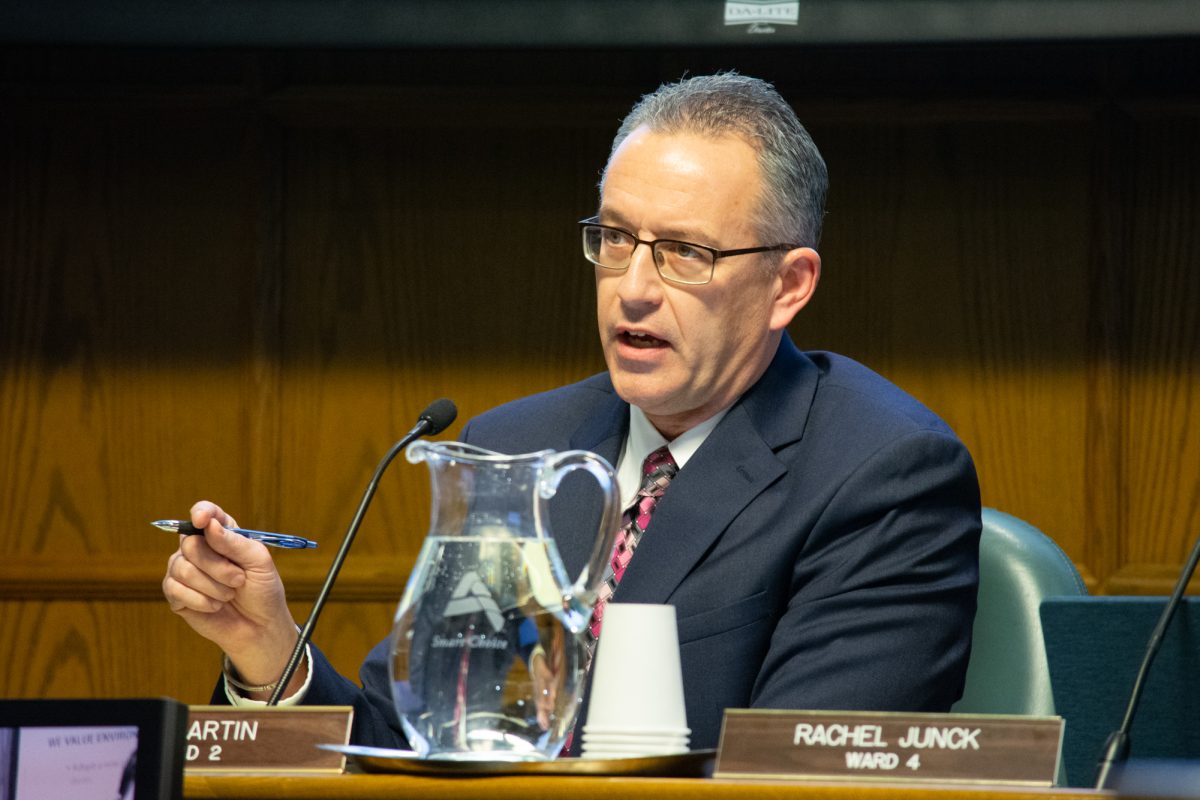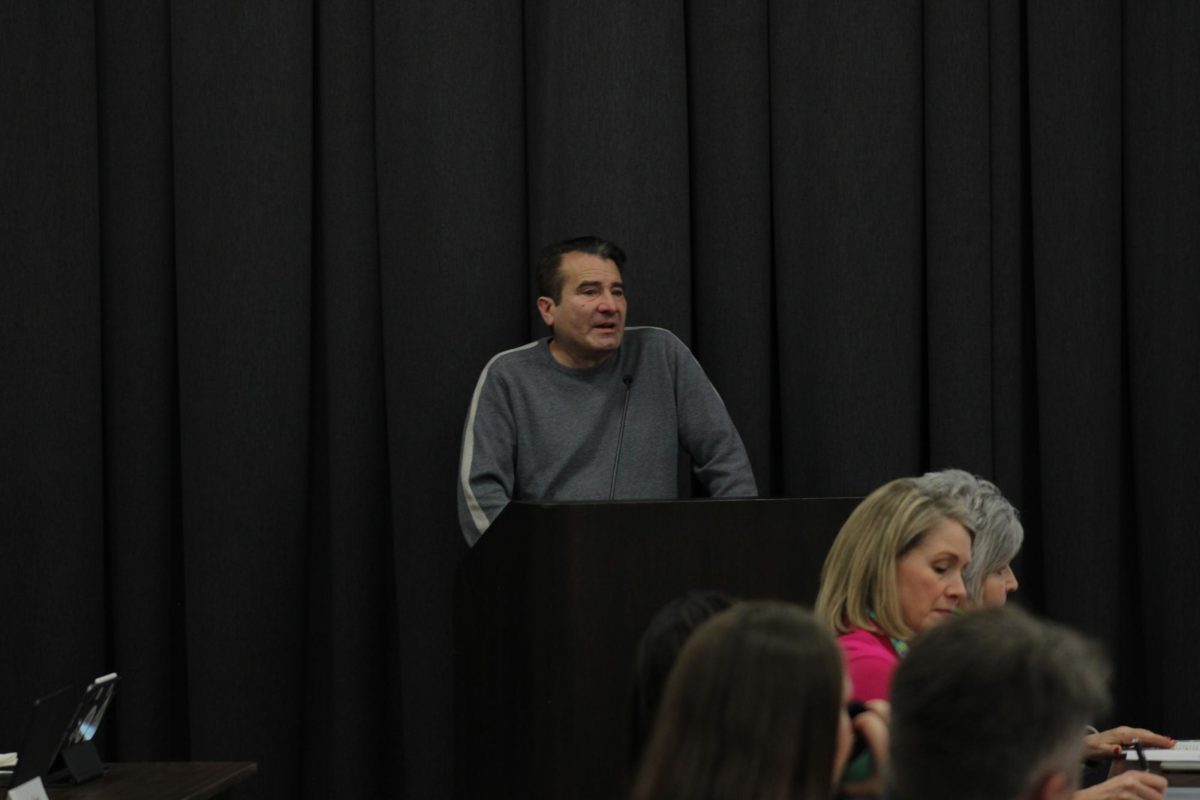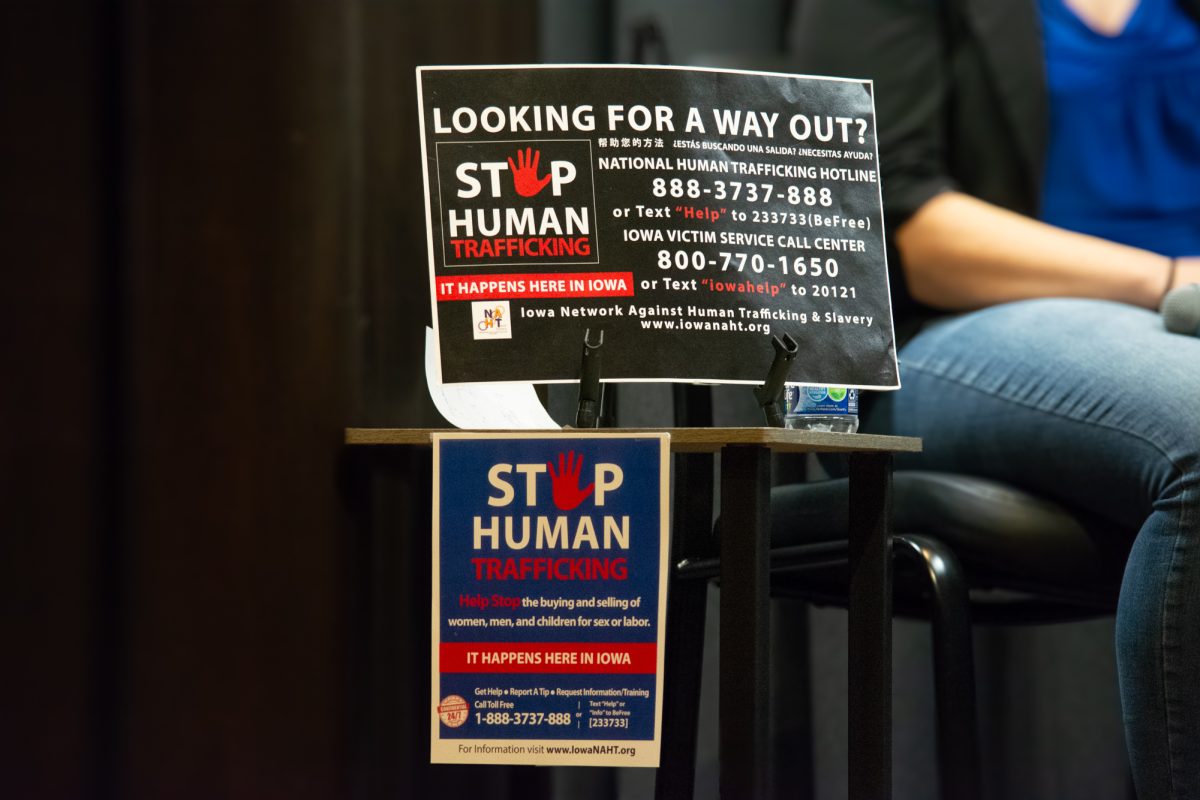The Iowa Bounce – Greenlee Future Forum
October 20, 2011
“It’s caucus time!”
Michel Bugeja, director of the Greenlee School of Journalism and Communication, kicked off the Greenlee Futures Forum by enthusiastically describing the subject matter and panelists who were to be focused on in the next hour.
Among the panelists were Jeff Zeleny (New York Times), Kathie Obradovich (Des Moines Register), John McCormick (Bloomberg), Dianne Bystrom (Catt Center for Women in Politics) and, via Skype, Chuck Todd (Chief Whitehouse Correspondent for NBC News).
Caucus scheduling was naturally a starting topic considering the discrepancies with the importance of caucusing to the election as well as current scheduling issues. The panelists came to a relatively similar consensus that candidates don’t come to Iowa for votes. Candidates come to Iowa because it is their first chance to really see how people are reacting to their campaign and to “test them,” as put by McCormick.
“We many not pick the candidate, but we certainly narrow the field,” Bystrom said.
As far as scheduling goes, the panelists were as frustrated with the rushed calendar and talk of the New Hampshire primary being as early as December. They agreed ther is less time for proper campaigning and increasing voter turnout.
While there is less time for candidates to solidify their campaign, there is a potential plus side to a more compact schedule. By allowing less time between caucus and primary, there is less “bounce” over the win, Obradovich said. This means the candidates who win won’t have as much time to reap the publicity benefits of their victory, possibly allowing other candidates to make a comeback.
Obradovich also reminded the panel, “Some states that waited ended up being more influential than anyone expected.” It makes one wonder why there is such a fuss about scheduling earlier if the benefits seem few and far between.
In protection of tradition, the push for earlier dates is somewhat understandable. The Iowa caucus has always preceded the New Hampshire primary, followed by the rest of the country. However, there reaches a point when the issue becomes mute.
“If New Hampshire moves to December, it will kill Iowa and New Hampshire in the future … you crack December and the decision is hard to defend,” Todd said.
While the Iowa caucus has remained a big step toward presidential election, are Iowans asking too much by putting so much emphasis on the importance of holding the caucus first? The discussion tended to imply that it is perfectly reasonable to insist on the prominence of the caucus.
An example discussed by the panelist was the Iowa Straw Poll, held on the ISU campus. This has become such a large media event for Iowa that in correlation with the caucus, Iowa needs to be careful about how much influence it wants to exhibit upon the rest of the country. McCormick described this as potential “over commercializing.”
Media and campaign spending became another big subject of the evening. There is no doubt that “money matters because money gets organization,” Zeleny said.
That being said, it can be seen in many candidate’s campaigns that there is a definite, yet maybe uncertain, attempt to spend “smart” money. But the panelists aptly made the point that it is not all about the money in a campaign. Voters often see through the money of a less-than-qualified candidate, while a candidate with lesser funds but a strong potential for leading the country will no doubt shine.
Obradovich put it well, saying that, “Having a great organization is “smart” money. However, money is not going to save a mediocre candidate.”
Media is no savior in the situation either. Many candidates are spending ungodly amounts of money on advertising that is not reaching the appropriate voters. A good campaign is run by reasonable spending on getting information to particular voting groups. Chuck Todd put in that a “30 second TV ad is no longer effective.”
The incredibly frequency of debates this season has also had an effect on media coverage. Such frequent debates take a lot of reporting time away from enterprise reporting, or reporting beyond the campaign coverage, often regarding interesting findings about candidates pre-campaign. While debates allow for some knowledge of candidates, it may not have been worth the toll that it’s taking on enterprise reporting. The general feeling is that while debates are informational, many people are getting bored with the repetitiveness.
Finally, after nearly an hour of discussion, the question arises, “Do you think that many people understand the difference between a caucus and a primary?”
“I suspect if you ask the difference between a caucus and a primary not many people could tell you what it is…they think it’s a bunch of candidates showing up and talking to farmers…” says McCormick.
The fact of the matter is that the discussion of the importance of the Caucus has absolutely no meaning when not only does the majority of the country not know what a “caucus” is compared to a “primary”, there is a vast majority of Iowans that don’t know the difference. The defense of the cause quite possibly doesn’t even know what they’re defending.
National coverage of Iowa is becoming a concern for readers, specifically of the New York Times, because they have little knowledge of what actually happens. As discussed earlier however, the “test” of candidates in Iowa is well known according to Zeleny, “Most people do not understand…a lot of people think it’s unfair (that Iowa is covered) so heavily by New York Times…Readers are finding out information by what Iowa voters are asking candidates”.
The percentage of eligible voters who came to the Caucus in 2008 was 16%. This shows a dire need for education of the public on not only the issues regarding the Caucus, but what the Caucus is.
With a lively and invigorating discussion by some of the worlds best journalists it was impossible to be uninspired to make your vote count, regardless of time, day, money spent, or media coverage, there is a need for public education regarding politics.
In the words of Michael Bugeja, “It’s caucus time!”






